لحاف تزریق شیمیایی هیدرولیک چیست؟
هیدرولیک به عنوان یک عملکرد مکانیکی عمل می کند که از نیروی فشار مایع استفاده می کند. یک کویل تزریق شیمیایی هیدرولیک از اصل فشار هیدرولیک استفاده می کند. از طریق اتصال جوش یا فلنج به لوله متصل می شود. در اولین نصب، لوله باید خاموش شود. با این حال، پس از اولین بار، نیازی به تعطیلی خط لوله نیست. اپراتورها به راحتی می توانند انژکتور شیمیایی را تغییر دهند. ابزار بازیابی هیدرولیک ما را می توان به راحتی کار کرد و می تواند مجموعه انژکتور شیمیایی را در مدت زمان کوتاهی و بدون تلاش بازیابی کند.
سیستم های هیدرولیک چگونه کار می کنند؟
سیستم های هیدرولیک مدرن با استفاده از طیف وسیعی از اجزا از جمله محرک ها، شیلنگ ها و گاهی اوقات سیستم های بزرگتر مانند قنات ها و تنظیمات آبیاری کار می کنند که از گرانش برای تولید فشار آب استفاده می کنند. اساسا، این سیستم ها از خواص ذاتی آب برای تسهیل حرکت و تحویل آن استفاده می کنند.
اصل ضرب نیرو در سیستم های هیدرولیک نقش اساسی دارد. این امر با استفاده از یک سیلندر با قطر کوچکتر برای اعمال نیرو بر روی یک پیستون بزرگتر در یک سیلندر بزرگتر به دست می آید. این چیدمان اغلب شامل چندین پیستون است که کارایی و قدرت سیستم را افزایش می دهد.
پمپ های هیدرولیک نقش مهمی در این سیستم ها دارند. آنها مایعات، معمولا روغن های هیدرولیک، را تحت فشار قرار می دهند که سپس پیستون ها را از طریق سیلندرها حرکت می دهند. شیرهای کنترل نیز یکپارچه هستند زیرا سرعت جریان روغن را تنظیم می کنند و اطمینان حاصل می کنند که سیستم روان و موثر کار می کند. از طریق این مکانیسم ها، سیستم های هیدرولیک فشار سیال را به کار مکانیکی مفید تبدیل می کنند.
مدل انتخاب
| مدل | |||||||||||||||||||||||||||
| Si | انژکتور شیمیایی Quill | ||||||||||||||||||||||||||
| -کد | پلاگین | ||||||||||||||||||||||||||
| Pxxx | نوع | مواد | مهر مواد | ||||||||||||||||||||||||
| 0 | بدون درخواست | 0 | حسابهای | 0 | بدون درخواست | ||||||||||||||||||||||
| 1 | توخالی بدنه پلاگین | 1 | 316 اس اس | 3 | Dss | 1 | بسته بندی اولیه Viton O-Ring / PTFE | ||||||||||||||||||||
| 2 | بدنه پلاگین جامد | 2 | 316 ال اس اس | 4 | Inconel | 2 | HNBR | ||||||||||||||||||||
| –کد | مهره تزریق | ||||||||||||||||||||||||||
| Nxx | اندازه اتصال | مواد | |||||||||||||||||||||||||
| 0 | یعنی بدون درخواست | 0 | i.e. CS | ||||||||||||||||||||||||
| 1 | یعنی 1/4 اینچ | 1 | یعنی 316SS | 3 | یعنی DSS | ||||||||||||||||||||||
| 2 | یعنی 1/2 اینچ | 2 | یعنی 316LSS | 4 | یعنی اینکونل | ||||||||||||||||||||||
| –کد | تزریق لوله | ||||||||||||||||||||||||||
| Sxxx-Lx" | اندازه اتصال | مواد | نازل | اندازه خط (x") | |||||||||||||||||||||||
| 0 | بدون درخواست | 0 | حسابهای | 0 | یعنی بدون درخواست | موثرترین موقعیت برای تزریق به طور کلی در مرکز لوله است | |||||||||||||||||||||
| 1 | یعنی 1/4 اینچ | 1 | یعنی 316SS | 1 | یعنی باز کن | ||||||||||||||||||||||
| 2 | یعنی 1/2 اینچ | 2 | یعنی 316LSS | 2 | یعنی Quill | ||||||||||||||||||||||
| 3 | یعنی DSS | 3 | i.e. Cap & Core | ||||||||||||||||||||||||
| 4 | یعنی اینکونل | ||||||||||||||||||||||||||
| –کد | نوک پستان و دریچه (یا انتهای آن فلنج) سه راهی | ||||||||||||||||||||||||||
| Txx | اندازه اتصال | مواد | |||||||||||||||||||||||||
| 0 | یعنی بدون درخواست | 0 | i.e. CS | ||||||||||||||||||||||||
| 1 | یعنی نوک پستان 1/4 اینچ | a | یعنی نوک پستان و شیر 1/4 اینچ | 1 | یعنی 316SS | ||||||||||||||||||||||
| 2 | یعنی نوک پستان 1/2 اینچ | b | یعنی نوک پستان و شیر 1/2 اینچ | 2 | یعنی 316LSS | ||||||||||||||||||||||
| 3 | یعنی نوک پستان 3/4 اینچی | c | یعنی نوک پستان و شیر 3/4 اینچی | 3 | یعنی D SS | ||||||||||||||||||||||
| 4 | یعنی 1 "نوک پستان | d | یعنی 1 اینچ نوک پستان و شیر | 4 | یعنی اینکونل | ||||||||||||||||||||||
| 5 | یعنی فلنج 1/4 اینچ | e | یعنی فلنج انتهای نوک پستان 1/4 اینچ | ||||||||||||||||||||||||
| 6 | یعنی فلنج 1/2 اینچ | f | یعنی فلنج انتهای نوک پستان 1/2 اینچی | ||||||||||||||||||||||||
| 7 | یعنی فلنج 3/4 اینچی | g | یعنی فلنج انتهای نوک پستان 3/4 اینچی | ||||||||||||||||||||||||
| 8 | یعنی فلنج 1 اینچی | h | یعنی فلنج انتهای نوک پستان 1 اینچی | ||||||||||||||||||||||||
| به عنوان مثال، SI-P221-N12-S122-L4"-T22 | |||||||||||||||||||||||||||
| SI:e.g. Sampling & Injection Assembly, | |||||||||||||||||||||||||||
| P221: به عنوان مثال بدنه پلاگین جامد در 316LSS Viton O-Ring و بسته بندی اولیه PTFE ، | |||||||||||||||||||||||||||
| N12: به عنوان مثال اندازه اتصال مهره تزریق 1/4 اینچ است و مواد است 316LSS ، | |||||||||||||||||||||||||||
| S122: به عنوان مثال تزریق لوله اندازه اتصال 1/4 اینچ است و مواد است 316LSS. نوع نازل quiills است | |||||||||||||||||||||||||||
| L4 ": برای لوله 4 اینچی. | |||||||||||||||||||||||||||
| تی 22: نوک پستان اندازه اتصال سه راهی 1/2 اینچ است، مواد نوک پستان است 316 ال اس اس | |||||||||||||||||||||||||||
کاربردهای تزریق شیمیایی Quill
قلم های تزریق مواد شیمیایی دستگاه های تخصصی هستند که در فرآیندهای مختلف صنعتی برای اطمینان از تزریق دقیق و ایمن مواد شیمیایی به خط لوله یا ظرف استفاده می شوند. عملکرد اصلی آنها وارد کردن مواد شیمیایی به یک سیستم در یک نقطه تعیین شده و اطمینان از اختلاط و پراکندگی بهینه است. در اینجا برخی از کاربردهای رایج کوئل های تزریق شیمیایی آورده شده است:
1. تصفیه آب
اپراتورها از قلم های تزریق مواد شیمیایی در تاسیسات تصفیه آب برای تزریق کلر، کلرامین ها و سایر مواد ضدعفونی کننده به سیستم های آبرسانی استفاده می کنند. این به تصفیه آب با از بین بردن باکتری ها و سایر عوامل بیماری زا کمک می کند و اطمینان حاصل می کند که آب برای مصرف ایمن است. آنها همچنین اسیدها یا بازها را برای تنظیم سطح pH در آب تزریق می کنند.
2. صنعت نفت و گاز
در بخش نفت و گاز، کارگران از کوئیل های تزریقی برای تزریق بازدارنده های خوردگی، بازدارنده های مقیاس، بیوسیدها و سایر مواد شیمیایی به خطوط لوله و سایت های چاه استفاده می کنند. این مواد شیمیایی به محافظت از تجهیزات در برابر خوردگی، تجمع مقیاس و رشد میکروبی کمک می کنند و در نتیجه کارایی و ایمنی عملیاتی را افزایش می دهند.
3. سیستم های بویلر
اپراتورها از قلم های تزریق مواد شیمیایی در سیستم های دیگ بخار برای تزریق مواد شیمیایی مانند پاک کننده های اکسیژن و عوامل کنترل pH استفاده می کنند. این مواد شیمیایی به جلوگیری از خوردگی و پوسته پوسته شدن در داخل دیگ بخار و خطوط بخار کمک می کنند و در نتیجه عمر تجهیزات را افزایش می دهند و کارایی را بهبود می بخشند.
4. برج های خنک کننده
در سیستم های برج خنک کننده، اپراتورها از قلم های تزریق شیمیایی برای معرفی جلبک کش ها، بیوسیدها و بازدارنده های خوردگی استفاده می کنند. این به کنترل رشد بیولوژیکی و خوردگی کمک می کند، که می تواند عملکرد سیستم را به میزان قابل توجهی کاهش دهد و منجر به تعمیرات پرهزینه و خرابی شود.
5. فرآوری شیمیایی
تأسیسات تولید مواد شیمیایی از قلم های تزریقی برای افزودن مقادیر دقیق واکنش دهنده ها به مخازن واکنش استفاده می کنند. این دوز دقیق برای حفظ تعادل شیمیایی صحیح که برای تولید محصولات مورد نظر با بازده و خلوص بالا ضروری است، بسیار مهم است.
6. تولید برق
در نیروگاه ها، به ویژه آنهایی که از توربین های بخار استفاده می کنند، اپراتورها از لوله های تزریق مواد شیمیایی برای تزریق مواد شیمیایی به آب تغذیه برای کنترل پوسته پوسته شدن و خوردگی، مسائل رایج به دلیل دما و فشار بالا استفاده می کنند.
7. پتروشیمی ها
صنعت پتروشیمی از قلم های تزریق شیمیایی برای افزودن کاتالیزورها و بازدارنده ها به طور مستقیم به راکتورها یا خطوط فرآوری استفاده می کند. این به بهینه سازی نرخ واکنش و محافظت از تجهیزات کمک می کند.
8. صنایع غذایی و آشامیدنی
اگرچه صنعت غذا و نوشیدنی کمتر رایج است، اما از قلم های تزریق مواد شیمیایی برای تزریق مواد ضدعفونی کننده یا سایر مواد شیمیایی تصفیه کننده به خطوط تولید یا سیستم های تمیز کننده برای حفظ استانداردهای بهداشتی استفاده می کند.
9. تصفیه فاضلاب
مشابه تصفیه آب، سیستم های فاضلاب از قلم های تزریق شیمیایی برای تزریق منعقد کننده ها، لخته سازها و ضد عفونی کننده ها استفاده می کنند. این مواد شیمیایی به تصفیه موثر فاضلاب قبل از تخلیه یا استفاده مجدد آن کمک می کنند.
لحاف های تزریق مواد شیمیایی به گونه ای طراحی شده اند که اطمینان حاصل شود که مواد شیمیایی به مرکز جریان جریان تزریق می شوند و باعث اختلاط سریع و کاهش احتمال شیب غلظت شیمیایی می شوند و در نتیجه اثربخشی و ایمنی فرآیند تزریق مواد شیمیایی را افزایش می دهند.


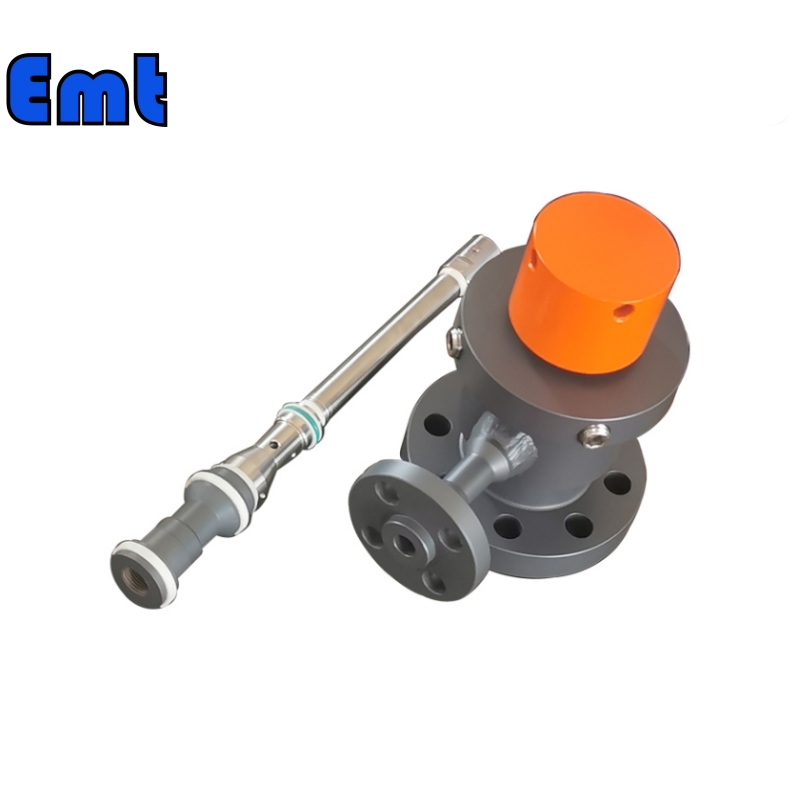
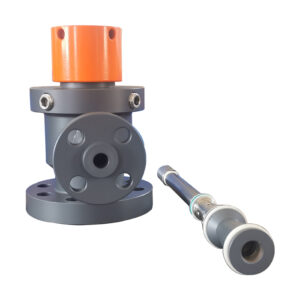
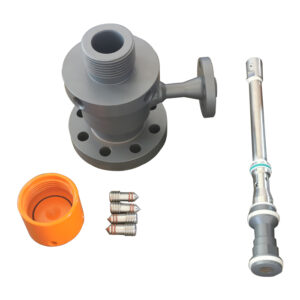
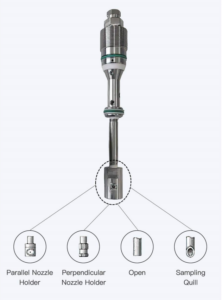
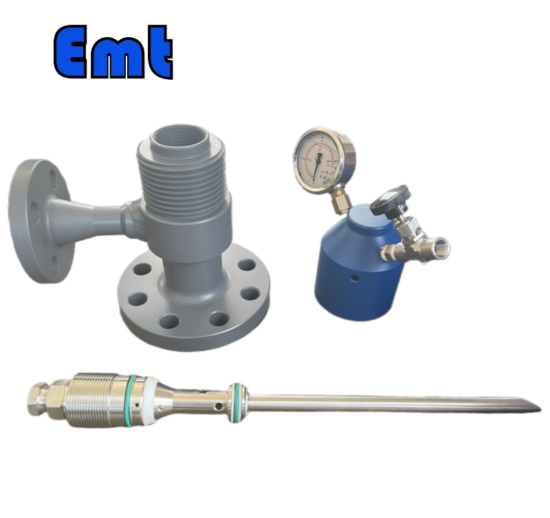
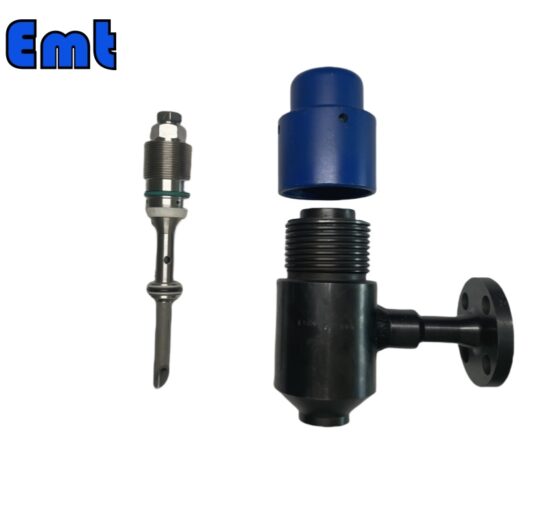
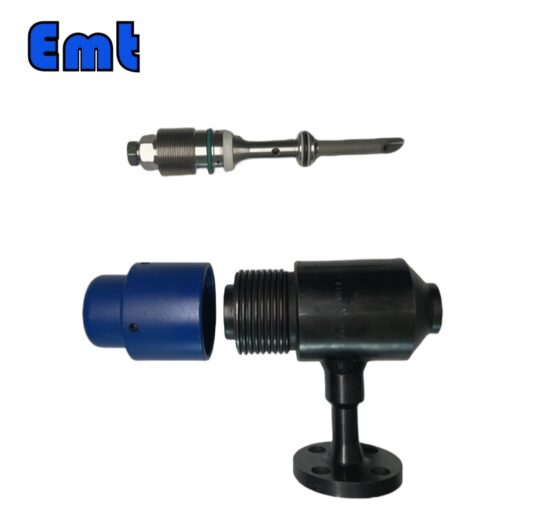
هنوز هیچ بررسی وجود ندارد.